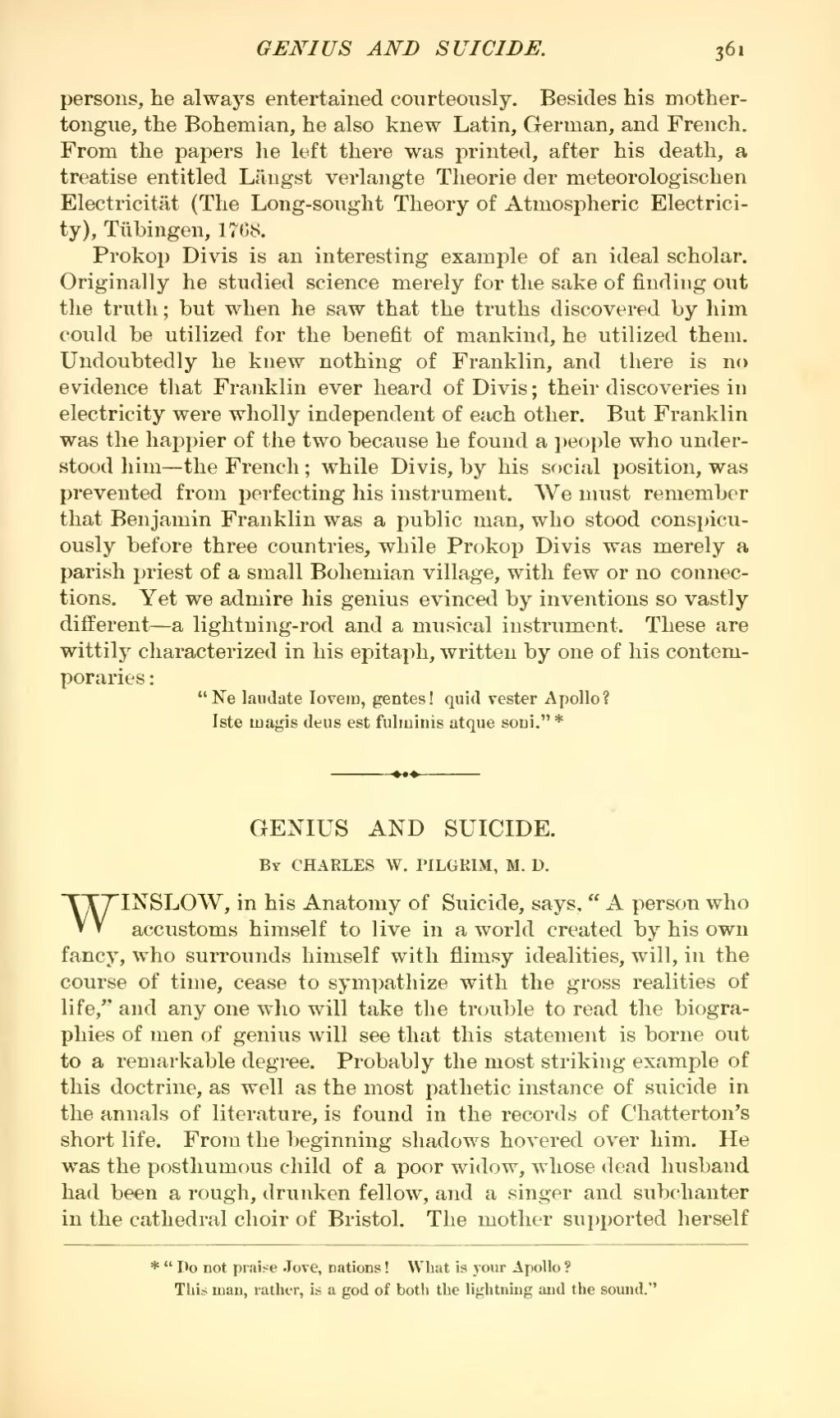persons, he always entertained courteously. Besides his mothertongue, the Bohemian, he also knew Latin, German, and French. From the papers he left there was printed, after his death, a treatise entitled Längst verlangte Theorie der meteorologischen Electricität (The Long-sought Theory of Atmospheric Electricity), Tübingen, 1768.
Prokop Divis is an interesting example of an ideal scholar. Originally he studied science merely for the sake of finding out the truth; but when he saw that the truths discovered by him could be utilized for the benefit of mankind, he utilized them. Undoubtedly he knew nothing of Franklin, and there is no evidence that Franklin ever heard of Divis; their discoveries in electricity were wholly independent of each other. But Franklin was the happier of the two because he found a people who understood him—the French; while Divis, by his social position, was prevented from perfecting his instrument. We must remember that Benjamin Franklin was a public man, who stood conspicuously before three countries, while Prokop Divis was merely a parish priest of a small Bohemian village, with few or no connections. Yet we admire his genius evinced by inventions so vastly different—a lightning-rod and a musical instrument. These are wittily characterized in his epitaph, written by one of his contemporaries:
| "Ne laudate Iovem, gentes! quid vester Apollo? |
| Iste magis deus est fulminis atque soni."[1] |
| GENIUS AND SUICIDE. |
By CHARLES W. PILGRIM, M. D.
WINSLOW, in his Anatomy of Suicide, says, "A person who accustoms himself to live in a world created by his own fancy, who surrounds himself with flimsy idealities, will, in the course of time, cease to sympathize with the gross realities of life," and any one who will take the trouble to read the biographies of men of genius will see that this statement is borne out to a remarkable degree. Probably the most striking example of this doctrine, as well as the most pathetic instance of suicide in the annals of literature, is found in the records of Chatterton's short life. From the beginning shadows hovered over him. He was the posthumous child of a poor widow, whose dead husband had been a rough, drunken fellow, and a singer and subchanter in the cathedral choir of Bristol. The mother supported herself
- ↑
"Do not praise Jove, nations! What is your Apollo?
This man, rather, is a god of both the lightning and the sound."

